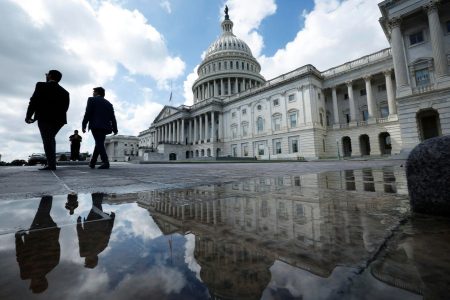While the first presidential debate will likely touch upon a variety of critical topics, tax and estate planning might not be among them. Nevertheless, this article covers the candidates’ tax policies as they relate to estate planning.
Both President Joe Biden and former President Donald Trump have proposed significant changes to the tax landscape, particularly concerning wealth transfer tax exemptions (including estate, gift, and generation-skipping transfer tax exemptions), post-mortem basis adjustment rules, and capital gains taxes. Understanding the implications of these proposed plans is crucial for taxpayers and policymakers alike. This article will explain some of the key differences between the Biden and Trump plans, examining how they may shape the future of taxation in the United States.
Estate, Gift And GST Tax Exemptions
One of the primary areas of contention between the two tax plans are the estate, gift, and generation-skipping transfer tax exemption amounts—the threshold at which estates become subject to federal estate or generation-skipping transfer taxes upon death (or in which these wealth-transfer taxes would be paid during life following certain gifts). Under the Trump tax plan, the exemption amounts were raised significantly, reaching an all-time high of $13.61 million per individual in 2024, indexed for inflation. These generous exemptions effectively shielded the vast majority of estates from federal wealth transfer taxation. However, since these tax laws were created when Trump was president pursuant to the Tax Cuts and Jobs Act, which sunsets on Jan. 1, 2026, legislation would be needed in order to make these tax laws permanent.
In contrast, the Biden tax plan proposes to roll back the exemption amounts to pre-2017 levels. Specifically, Biden has advocated for reducing the exemptions to $5.49 million per individual, adjusted for inflation. This adjustment would subject more estates to federal estate taxes, particularly those with higher net worth. In general, this would be a return to the Obama era tax laws. It is noted that in order for this to occur, the TCJA would simply need to sunset on Jan. 1, 2026. Thus, no additional legislation would be needed in order for Biden to achieve his stated goal for the drop in exemption amounts.
Estate, Gift And GST Tax Rates
Another crucial aspect of wealth transfer taxation is the applicable tax rate on estates exceeding the exemption threshold. Under the Trump tax plan, the estate tax rate remained consistent at 40% for taxable estates, a rate established under previous administrations. Trump would prefer to lock in this tax rate by making the TCJA permanent.
Conversely, the Biden tax plan seeks to increase the estate tax rate for high-net-worth estates. On various occasions, Biden has proposed raising the top wealth transfer tax rates to 45%, representing a significant increase from the current rate. This higher rate would apply to estates valued above the proposed exemption threshold, potentially resulting in greater tax liabilities for affected estates. However, in order to raise the tax rate for estate tax, gift tax, and generation-skipping transfer tax from 40% to 45%, legislation would need to be passed in order to accomplish this goal.
Post-Mortem Basis Adjustment
The concept of post-mortem basis adjustment — often referred to as a step-up in basis — has long been a cornerstone of estate planning strategies, allowing heirs to inherit assets at their fair market value at the time of the decedent’s death, thereby minimizing capital gains taxes upon subsequent sale. Under the Trump tax plan, the post-mortem basis adjustment under Internal Revenue Code Section 1014 would remain intact, providing beneficiaries with a valuable tax advantage when inheriting appreciated assets.
However, the Biden tax plan aims to overhaul the treatment of post-mortem basis adjustment for inherited assets. The president generally has proposed eliminating the step-up in basis for gains in excess of $1 million ($2.5 million per couple when combined with existing real estate exemptions). This change would effectively subject unrealized capital gains on inherited assets exceeding the threshold to capital gains taxes upon transfer, potentially increasing tax liabilities for beneficiaries. Biden and many Democrats previously tried to get legislation passed to implement this and other changes, but it was essentially blocked by Senator Kyrsten Sinema of Arizona and Senator Joe Manchin of West Virginia, who are now independents.
Capital Gains Tax
Capital gains taxes play a significant role in investment decisions and wealth accumulation. Under the Trump tax plan, the capital gains tax rates remained relatively low compared to ordinary income tax rates, generally with a maximum rate of 20% for long-term capital gains on assets held for more than one year, plus the 3.8% net investment income tax for certain taxpayers.
In contrast, the Biden tax plan seeks to increase capital gains taxes for high-income individuals. Biden has proposed taxing long-term capital gains and qualified dividends at the ordinary income tax rates (up to 39.6%) for taxpayers with income exceeding $1 million. This adjustment represents a substantial increase from current rates and aims to address perceived inequities in the tax treatment of investment income.
Implications And Considerations
The disparities between the Biden and Trump tax plans underscore the broader philosophical differences regarding taxation, wealth distribution, and economic policy. The Republican Party argue that the Trump tax plan incentivizes investment with lower taxes, which in turn spurs economic growth. This consequently may preserve wealth for future generations in estate planning. Conversely, Democrats contend that higher taxes on the wealthy promote fairness, fund social programs, and address income inequality, which they believe the Biden tax plan addresses.
For taxpayers and estate planners, navigating these proposed changes requires careful consideration and proactive planning, and most likely action needs to be taken sooner rather than later. Advanced estate planning strategies such as gifting to irrevocable trusts, utilization of high exemption amounts before a potential drop, etc. may become increasingly vital in light of potential tax law changes. Additionally, seeking guidance from qualified tax professionals and financial advisors can help individuals and families adapt to evolving tax landscapes and optimize their financial strategies accordingly.
Conclusion
As the 2024 election approaches, the debate over tax policy will undoubtedly remain a central focus for voters and policymakers alike, even if it is never discussed during the presidential debates. The Biden and Trump tax plans present divergent visions for taxation in the United States, particularly concerning the area of estate planning. Understanding the implications of these proposed plans is essential for individuals, families, and businesses seeking to navigate the complexities of the tax code and plan for their financial futures.
Read the full article here
















